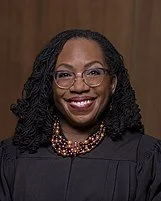
Legal Power
Legal power is the ability to influence, shape, and enforce laws and regulations governing society. This power is exercised through the legislative, executive, and judicial branches of government, and it affects all aspects of life, including civil rights, economic policies, and social justice.
Deep Dive Into Legal Power
Legal power is a crucial vehicle of change, as it defines the rights and responsibilities of individuals and organizations and sets the framework within which society operates. Historically, The legal system has been used to uphold and challenge social inequalities.
The structure of legal power in the United States has often reflected the interests of those in positions of authority. Historically, legal systems and institutions have marginalized certain groups while privileging others. This includes laws that have enforced racial segregation, gender discrimination, and economic inequality.
Ways to cultivate our collective legal power
Engage in Legal Advocacy: Support local and national legal advocacy organizations that work on issues affecting your community. By raising awareness, lobbying for policy changes, and providing legal representation, these organizations can help protect and advance community interests.
Encourage Civic Participation: Motivate community members to participate in local government meetings, vote in elections, and engage in civic activities. Active participation in the democratic process helps ensure that community voices are heard and considered in policy-making.
Promote Legal Education: Offer or participate in workshops and seminars that educate community members about their legal rights and responsibilities. Understanding the law empowers individuals to advocate for themselves and their community effectively.
Foster Relationships with Legal Professionals: Build relationships with local lawyers, judges, and law students who are willing to provide pro bono services, mentorship, and support for community-driven legal initiatives. These connections can offer invaluable expertise and advocacy for community causes.
Support Community Legal Clinics: Establish or support free or low-cost legal clinics that assist with legal issues such as housing, employment, and immigration. These clinics offer valuable resources to those who may not otherwise have access to legal services.
Create Legal Defense Funds: Establish legal defense funds to support community members facing legal challenges, particularly those related to civil rights, immigration, or labor disputes. These funds can help cover legal fees and other costs associated with defending against unjust legal actions.
US Supreme Court Justices
Chief Justice John Roberts
Age: 69
Years Served: 18
Conservative
Justice Brett Kavanaugh
Age: 59
Years Served: 5
Conservative
Justice Neil Gorsuch
Age: 57
Years Served: 5
Conservative
Justice Clarence Thomas
Age: 76
Years Served: 32
Conservative
Justice Sonia Sotomayor
Age: 70
Years Served: 14
Progressive
Justice Amy Coney Barrett
Age: 52
Years Served: 3
Progressive
Justice Elena Kagan
Age: 64
Years Served: 13
Conservative
Justice Ketanji Brown Jackson
Age: 54
Years Served: 2
Progressive
Justice Samuel Alito
Age: 74
Years Served: 18
Conservative
2024 Supreme Court Rulings
FDA v. Alliance for Hippocratic Medicine: The Supreme Court ruled that the doctors opposing the abortion pill mifepristone lacked standing. This decision maintains access to the abortion pill, which is a significant outcome for reproductive rights advocates (Northeastern Global News) (Politico)..
SEC v. Jarkesy: This case questions the constitutionality of in-house judges at federal agencies, which could impact the administrative state and the way regulatory decisions are made and enforced (Politico).
Trump v. United States: This case involves former President Trump's bid for immunity from criminal prosecution related to election subversion charges. The court has not yet decided whether a former president can claim such immunity, which could significantly impact ongoing and future legal proceedings against Trump (Politico).
NetChoice v. Paxton and Moody v. NetChoice: These cases challenge laws from Texas and Florida that aim to prevent social media companies from moderating content in ways perceived as biased against conservatives. The decisions could shape the future of online speech and content moderation (Politico).
Fischer v. United States: This case addresses the legal challenges stemming from the January 6th Capitol riot. Defendants argue that the federal law used to charge them with obstructing an official proceeding is overly broad. A decision narrowing this law could affect many cases, including those against former President Trump (Politico).
Murthy v. Missouri: This lawsuit involves allegations that the Biden administration violated the First Amendment by urging social media companies to remove misinformation. The court's decision will address the extent of government influence on private platforms regarding content regulation (Politico).
Moyle v. United States: The Supreme Court is set to decide whether hospitals in states with abortion bans are required by federal law to perform emergency abortions. This case is crucial as it will test the limits of state abortion bans in light of federal emergency medical requirements (Politico).
Relentless Inc. v. Department of Commerce and Loper Bright Enterprises v. Raimondo: These cases challenge the Chevron doctrine, which allows federal agencies to interpret their own authority. Overturning this doctrine could reduce the power and flexibility of federal agencies in making regulatory decisions (Politico).














